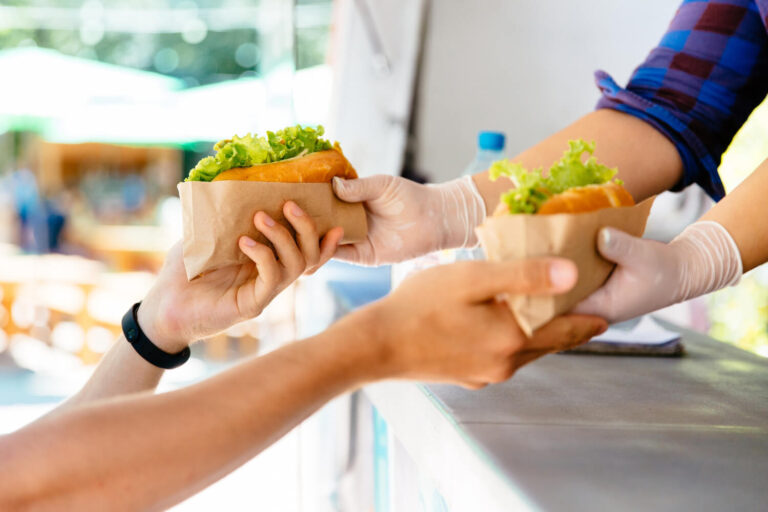Starting a food truck business can be a great way to tap into the vibrant food scene, especially in areas like the East Valley of Phoenix. But, before you start serving your delicious dishes on wheels, it’s important to understand the financial side of starting a food truck.
So, how much does it cost to start a food truck, and what are the initial startup costs for a food truck? Let’s break it down.
Initial Startup Costs for a Food Truck
The first step in calculating how much it will cost to start your food truck is understanding the various food truck expenses and costs.
While the exact amount varies based on location, equipment, and menu type, the average food truck startup cost ranges from $50,000 to $200,000. Here’s a closer look at the most common expenses:
1. Truck purchase or rental
A new custom-built food truck can cost between $50,000 to $175,000, depending on the size and equipment.
You can also consider buying a used truck, which might lower your initial costs to around $30,000 to $70,000. If buying isn’t an option, renting could cost between $2,000 to $4,000 per month.
2. Licensing and permits
Permits and licenses are crucial and vary by city. In Phoenix, for example, a health department permit, business license, and food handler’s card are necessary. These can range between $500 to $2,000.
3. Insurance
Food truck insurance is essential to cover accidents, equipment damage, and liability. On average, it costs between $2,000 and $4,000 annually.
4. Kitchen equipment
A food truck needs kitchen appliances like refrigerators, fryers, ovens, and prep tables. Depending on your menu, expect to spend $10,000 to $30,000 on equipment.
5. Commissary fees
In some cities, food trucks are required to use a commercial kitchen or commissary for food storage and prep. Renting kitchen space can range from $500 to $2,500 per month.
6. Marketing and branding
Establishing a brand is essential for success. Budget at least $1,000 to $5,000 for graphic design, truck wraps, signage, and online marketing.
7. Inventory and ingredients
Your opening day will require ingredients, utensils, and other supplies. Expect to spend around $1,000 to $2,000 on your first stock of food and materials.
Tips to Start a Food Truck
Starting a food truck can be challenging, but with the right approach, it can lead to success. Here are some tips to start a food truck and avoid common pitfalls:
- Research Your Market: Understand your target audience. What type of food are they looking for? Are there gaps in the local food truck scene?
- Develop a Strong Business Plan: A well-thought-out business plan will guide your decisions and attract potential investors.
- Choose the Right Location: Food trucks rely on foot traffic. Make sure to operate in busy areas like festivals, business districts, or events.
- Focus on Quality and Consistency: Your food is the star of the show. Offer quality dishes consistently to build a loyal customer base.
- Build Your Brand Early: Effective branding helps you stand out. Invest in a professional logo, a unique truck design, and a strong online presence.
Myths and Mistakes When Starting a Food Truck
Starting a food truck is exciting, but there are several myths and mistakes when starting a food truck that entrepreneurs should be aware of:
Myth: It’s cheaper than opening a restaurant
While a food truck is often more affordable than a brick-and-mortar restaurant, it’s still a significant investment. Be prepared for ongoing expenses like maintenance, insurance, and permits.
Mistake: Not planning for maintenance
A food truck is a mobile business, and vehicles require regular maintenance. Budget for repairs and maintenance costs that could range from $1,000 to $5,000 annually.
Myth: Social media alone will bring in customers
While social media is important, you also need to invest in other marketing strategies, like attending events, building partnerships, and local advertising.
Mistake: Skipping menu testing
Before you launch, test your menu with friends and family. Ensure that your food can be prepared efficiently in a mobile kitchen environment.
Final Thoughts: Plan Smart and Budget Wisely
Launching a food truck is an exciting venture that allows you to share your culinary skills with the community. However, understanding the initial startup costs for a food truck and planning for food truck expenses and costs is essential.
With the right planning, and by avoiding common mistakes, you can turn your food truck dream into a successful reality.
If you’re ready to start your food truck business, the East Valley Hispanic Chamber of Commerce (EVHCC) can provide resources, support, and guidance to help Hispanic entrepreneurs succeed. Take the first step towards your food truck success today!
Grow your business with us,
become a member!


